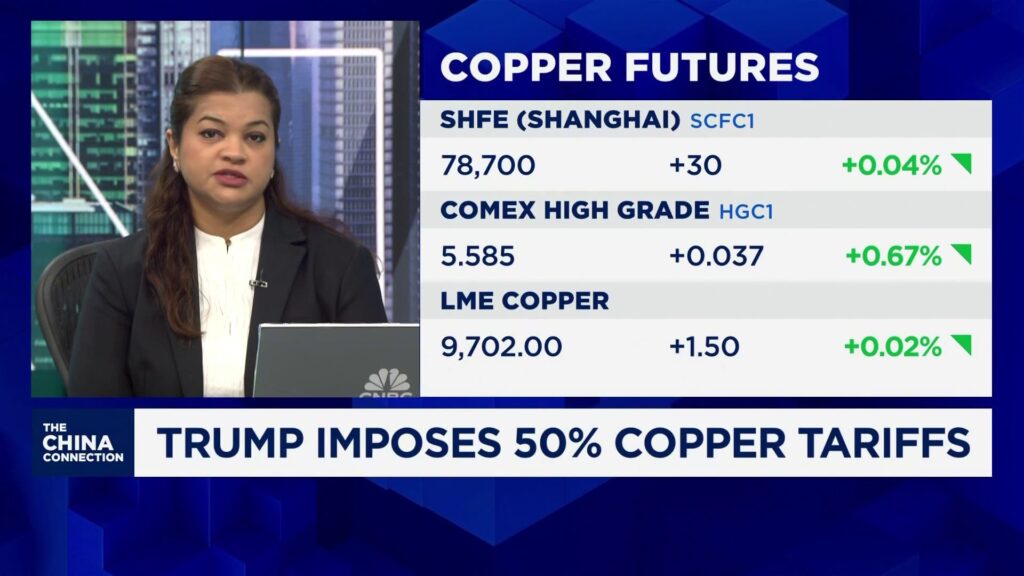
New research from Business Monitor International (BMI) indicates that proposed copper tariffs by the United States could provide a temporary advantage for China’s copper industry. Nevertheless, experts warn that any potential benefits may not have lasting effects in the global commodities market.
The Biden administration is considering the introduction of new tariffs on imported copper, a move intended to bolster domestic production. This policy is expected to impact China’s exports, which have become increasingly significant in recent years. According to BMI, China is the world’s largest copper consumer and a major supplier of refined copper, making it particularly sensitive to changes in U.S. trade policy.
February 2024 is shaping up to be a pivotal month as discussions around these tariffs intensify. The U.S. aims to reduce reliance on foreign copper and enhance its manufacturing capabilities. This initiative aligns with broader efforts to fortify domestic industries amid global supply chain disruptions.
Short-Term Gains vs. Long-Term Challenges
While the imposition of tariffs might yield immediate gains for China’s copper sector by redirecting some of its exports, BMI emphasizes that the long-term outlook remains uncertain. The report suggests that any advantages could be offset by several factors, including the potential for retaliatory measures from the U.S. and shifts in global demand for copper.
Moreover, BMI notes that the copper market is influenced by various external dynamics. These include fluctuations in production levels and changes in consumption patterns, particularly in renewable energy and electric vehicle sectors. As countries transition toward greener technologies, demand for copper is expected to rise, complicating the effects of U.S. tariffs on international trade.
Global Implications of U.S. Tariffs
The potential tariffs could also have broader implications for the global commodities market. Analysts predict that if implemented, these tariffs might lead to increased prices for copper, affecting industries dependent on this essential metal. Construction, electronics, and renewable energy sectors could all feel the strain as costs rise.
In the event of a trade dispute, BMI anticipates that China may seek to diversify its export markets to mitigate the impact of U.S. tariffs. This could involve strengthening trade relationships with other countries, particularly in Asia and Africa, where demand for copper is also growing.
As discussions continue, stakeholders from both nations will closely monitor developments. The outcome of these tariff talks could reshape the landscape of the global copper market, highlighting the interconnectedness of international trade.
In conclusion, while the prospect of U.S. copper tariffs may provide a temporary boost for China, the long-term effects remain uncertain. Industry watchers will be keen to see how these dynamics unfold in the coming months, particularly in relation to global demand and potential retaliatory actions.







